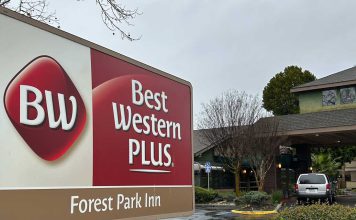An effort to rescue the cash-starved school district is inching
forward, but it remains unclear how much a sacrifice City Hall or
local developers will make to prevent over-crowded classrooms.
Gilroy – An effort to rescue the cash-starved school district is inching forward, but it remains unclear how much a sacrifice City Hall or local developers will make to prevent over-crowded classrooms.
The Gilroy Unified School District has called on developers to volunteer more money to help build new schools, as it faces a $15 million budget deficit and a legal straight-jacket preventing it from significantly raising fees on new homes to offset the cost of educating additional students.
The district raised the issue in December and offered a detailed proposal in March, but developers showed up at a May meeting empty-handed, calling instead for city involvement in the process. Last week, the three sides appointed a task force and mediator charged with hashing out the issue by September. The first meeting takes place July 10.
“I’m hopeful that progress can be made because the erosion of impact fees over the last nine years is so compelling that something obviously has to be done to correct the situation,” said GUSD Assistant Superintendent Steve Brinkman, referring to state-mandated limits on the fees the school district can charge to help keep pace with growth.
Nine years ago, each new home built in Gilroy meant roughly $8,630 in so-called impact fees to help build new schools, according to figures provided by Brinkman. Today, when the median home price has more than doubled to $695,000, the school district receives less than $6,000 per home. State laws not only capped school district impact fees, but tied the hands of city council when it comes to extracting concessions for schools. During he same time period, the city has seen its own fees rise from $21,165 per home to $49,699.
“The question becomes for any (developer), what other fees are going to be happening?” said Lee Wieder, a developer on the task force. “The city already charges fees, and it’s said that its one of the highest fees in the country for development. Is there going to be any relief from those fees?”
The city’s fee system is based on a complex study of the funds needed to keep pace with growth, Mayor Al Pinheiro pointed out.
“It doesn’t do us any good to lower the fee today, and then 10 years from now we find we don’t have the infrastructure to serve our community,” he said.
But it’s not just fees developers are grousing about. In recent years city officials have looked increasingly to the regulatory process to extract so-called “value-added” items from developers, ranging from solar-powered homes to additional park space.
Councilman Russ Valiquette left the door open for the possibility of rolling back fees or scaling back demands for value-added items.
“If the developers and the district need something from us, whether that’s a reduction in impact fees or something else that they might have come up with, that’s something we as a council need to seriously look at and review,” Valiquette said. “Developers will never like impact fees. If we charge a penny they’ll still find a way to complain about it. But whatever the city, the developers and district come up with, I want the district to make sure this is it, that they don’t come back and ask for more money.”
Some council members and developers have blamed the district for its own financial problems, accusing GUSD of fiscal mismanagement and calling for an audit. While admitting the district is struggling to pay its bills, GUSD trustee Jaime Rosso brushed aside the accusation as missing the heart of the problem.
A state law passed in the late ’90s with the backing of the development industry handcuffed school districts from raising fees, he pointed out. In the wake of the law, some city councils have threatened moratoriums on construction to force developers to help pay for new facilities. Others have convinced developers to voluntarily give back to school districts.
“Some communities come together and have one meeting and have a solution,” Rosso said. “In our community, it feels like its kind of gone on and on.”
Council does not plan to let the issue drag on without end, according to Councilman Roland Velasco. He pointed out the he and his council peers recently postponed a vote to dole out nearly 200 building permits – leftovers from a major housing permit competition conducted in 2003.
“There are individuals in the past who have been very pro-growth, and they may be saying right now that maybe it’s time to start slowing our growth,” Velasco said. “The action the council has taken with regard to this latest mini-competition is a shot across the bow to the development community to meet with the school district and try to come up with a solution.”













